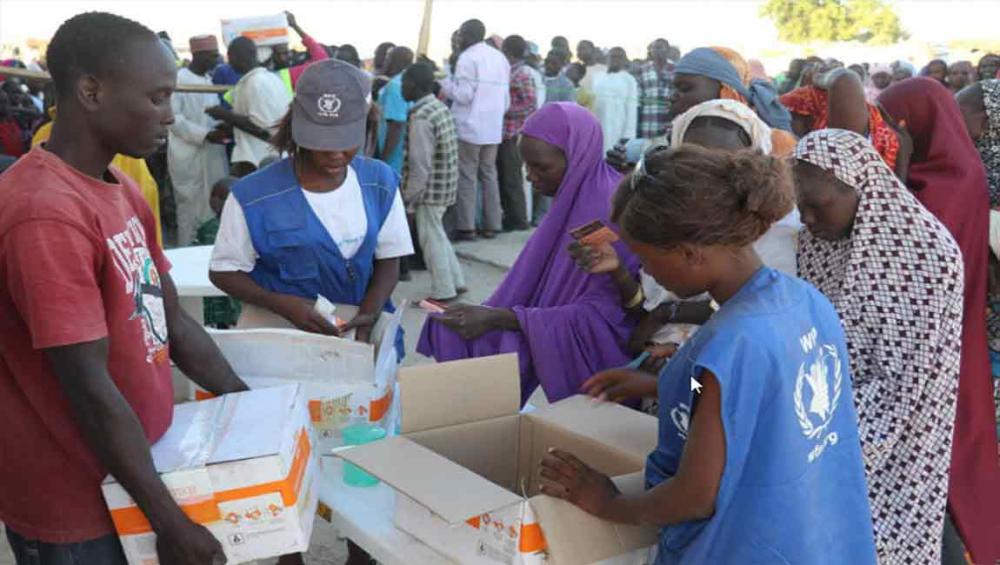Just Earth News | @justearthnews | 07 Sep 2017

WFP/Amadou Baraze
According to a flash update issued by the UN Office for the Coordination of Humanitarian Affairs (OCHA), most of the cases are in the Muna Garage camp for internally displaced persons, located on the outskirts of the state capital, Maiduguri, hosting approximately 20,000 individuals.
“Although an outbreak has not yet been declared officially, humanitarian partners have started taking the appropriate action,” read the update.
“A CTC [cholera treatment centre] has been setup [at Dikwa General Hospital, where at least 103 suspected cases have been reported] and an ORP [oral rehydration point] will be set up in coming days,” it added.
The number of suspected cases complicates the already complex and challenging humanitarian emergency in the province that has been plagued by persistent violence by the Boko Haram terrorist group.
In addition to poor quality and quantity of safe water and very poor sanitation and waste management conditions, the region also suffers from high rates of malnutrition, especially among children – who are amongst the most vulnerable to the deadly disease.
International community cannot afford to ignore this problem – WFP chief
UN World Food Programme (WFP) Executive Director David Beasley, who is currently visiting the country highlighted the urgency of sustained humanitarian action amid the complex and challenging emergency.
“The power of humanitarian assistance […] has changed the lives of malnourished children whose mothers once worried about whether they would survive,” he said.
“It is giving hope to many displaced and hungry people, and to others who are now returning home. Together, we are making a difference, but we must build on these fragile successes.”
Beasley’s two-day visit to Nigeria – his first since being appointed the WFP chief in March – included meetings with senior Government officials as well as with community leaders and young mothers at a camp in Maiduguri.
In addition to Nigeria, other countries in the Lake Chad Basin region also have been suffering the impact of the violence and the crisis.
Underscoring the importance of continued attention to the crisis, Beasley added: “[It] needs a security, humanitarian and development component – these are key to resolving it in the short and long term […] the international community cannot afford to ignore this problem, or it risks getting much worse.”